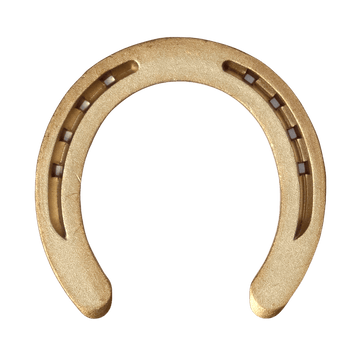A dog’s health is a lifelong commitment that requires responsible care, routine veterinary visits, and proper nutrition.
As pet owners, you play a crucial role in ensuring your furry friend’s long-term well-being.
This guide answers important canine health questions to help you provide the best care for your dog.

Understanding Your Dog’s Health
Why is Regular Veterinary Care Important?
Dogs age up to seven times faster than humans, and a pet's age significantly influences the frequency of vet visits, making regular checkups essential for early disease detection and preventive care.
-
Schedule annual vet visits for adult dogs and biannual visits for seniors.
-
Monitor your dog’s behavior and energy levels, as subtle changes can indicate underlying health issues.
-
Maintain a vaccination schedule to protect against common diseases like rabies, distemper, and parvovirus.
-
Keep track of health records to ensure your dog stays up to date on essential medical care.
How Can I Tell if My Dog is Healthy?
A healthy dog should have:
-
Bright eyes and clean ears with no discharge.
-
A shiny coat free from excessive shedding or bald spots.
-
Steady weight and strong appetite without sudden changes.
-
Normal stool and urination habits without signs of distress.
-
Active and social behavior without unusual lethargy, aggression, or other behavioral issues.

Nutrition and Lifestyle
What Should I Feed My Dog for Optimal Health?
Your dog’s diet plays a significant role in preventing obesity, maintaining strong muscles, and promoting overall wellness.
-
Choose high-quality dog food rich in protein, healthy fats, and essential vitamins.
-
Avoid overfeeding to prevent obesity-related diseases like diabetes and arthritis.
-
Consider your dog’s age, size, and activity level when selecting food.
-
Consult your vet for dietary recommendations, especially if your dog has allergies or digestive sensitivities.
It's important to consult your vet rather than relying solely on pet store products for tailored dietary recommendations.
How Much Exercise Does My Dog Need?
Physical activity tailored to your pet's lifestyle is crucial for weight management, mental stimulation, and cardiovascular health.
-
Small breeds: 30-45 minutes of activity per day.
-
Medium breeds: 45-60 minutes, including walks and playtime.
-
Large breeds: 60-90 minutes, including high-energy activities like running or swimming.
-
Senior dogs: Light exercise to maintain mobility and prevent joint stiffness.
Common Health Issues
What Are the Most Common Diseases That Affect Dogs?
Some of the most common canine health issues include:
-
Obesity – Leads to heart disease, diabetes, and joint pain.
-
Dental disease – Affects 80% of dogs over three years old, leading to tooth loss and infections.
-
Arthritis – Common in senior dogs, causing joint pain and reduced mobility.
-
Skin allergies – Often caused by food, environmental factors, or fleas.
-
Parasites (fleas, ticks, and heartworms) – Can cause severe illness if left untreated.
-
Unvaccinated dogs – At higher risk for preventable illnesses like parvovirus, which can be fatal. Vaccinations and boosters are crucial to protect pets.
How Do I Prevent Fleas, Ticks, and Heartworms?
Parasites are a year-round threat to your dog’s health. Prevention includes:
-
Monthly flea and tick preventatives in the form of oral tablets, collars, or topical treatments for your dog and other pets in the household.
-
Annual heartworm testing and preventative medication recommended by your vet.
-
Regular grooming and skin checks to spot parasites early.
Why is Dental Care So Important for Dogs?
Gum disease is one of the most overlooked pet health issues, but poor dental hygiene can lead to heart, kidney, and liver disease.
-
Brush your dog’s teeth at least 3 times a week using canine-friendly toothpaste.
-
Provide dental chews or water additives to help prevent plaque buildup.
-
Schedule professional cleanings annually to maintain oral health.
Veterinary Care and Advice
How Often Should My Dog See a Veterinarian?
Routine vet visits help detect early signs of illness before they become severe.
-
Puppies (under 1 year old) – Monthly checkups for vaccinations and growth monitoring.
-
Adult dogs (1-7 years old) – Annual wellness exams, vaccinations, and parasite prevention.
-
Senior dogs (7+ years old) – Biannual checkups to monitor for age-related conditions and ensure they enjoy their golden years with specialized care, including nutrition, pain management, and preventive screenings.
What Vaccinations Does My Dog Need?
Core vaccinations protect against life-threatening diseases:
-
Rabies (required by law in most places).
-
Distemper, parvovirus, and adenovirus (DAPP vaccine).
-
Bordetella and canine influenza (for social dogs in daycare or boarding facilities).
Unvaccinated dogs are at a higher risk of contracting preventable illnesses, which can lead to fatal outcomes, particularly from diseases like parvovirus.
Non-core vaccines depend on lifestyle and risk factors. Discuss with your vet whether your dog needs additional Leptospirosis or Lyme disease vaccines.
Responsible Pet Ownership
What Are the Financial Responsibilities of Owning a Dog?
Dog ownership involves recurring expenses, which can vary based on individual circumstances, including:
-
Food and nutrition ($30-$100 per month).
-
Veterinary visits and vaccinations ($200-$600 per year).
-
Flea, tick, and heartworm prevention ($100-$300 per year).
-
Grooming and hygiene ($40-$100 per session for professional grooming).
Investing in pet insurance can help cover unexpected medical costs.
How Can I Provide a Safe Home for My Dog?
-
Dog-proof your home by securing electrical cords, small objects, and household chemicals. Ensure all family members are aware of these precautions to maintain a safe environment.
-
Provide a comfortable bed or crate for a safe resting area.
-
Keep hazardous foods out of reach, such as chocolate, grapes, onions, and xylitol.
Pet Safety and Products
What Safety Measures Should I Take for My Dog?
-
Microchip your dog and use an ID tag to ensure they can be identified if lost.
-
Secure your yard or use a leash to prevent escape and accidents.
-
Choose high-quality flea prevention and heartworm medication based on your vet’s recommendations to protect your furry friends, especially when they interact with other dogs in parks or kennels.
Medication and Treatment
What Medications Might My Dog Need?
Depending on your pet's health, they may require:
-
Flea and tick preventatives to protect against parasites.
-
Joint supplements for dogs prone to arthritis.
-
Allergy medication if your dog has seasonal or food allergies.
-
Prescription medications for chronic illnesses like diabetes or thyroid issues.
How Do I Administer Medication to My Dog?
-
Use pill pockets or hide pills in food to make administration easier.
-
Follow dosage instructions carefully and complete the full course of treatment.
-
Monitor for side effects, such as vomiting, diarrhea, or lethargy, and report concerns to your vet.
Frequently Asked Questions
What are the five most common diseases in dogs?
-
Obesity
-
Periodontal disease
-
Ear infections
-
Arthritis
-
Heart disease
As pets age, they are more susceptible to these common diseases, making it crucial to tailor health care plans to their age, lifestyle, and overall well-being.
What is the most overlooked pet healthcare issue?
Dental disease is often neglected, but it can lead to systemic infections and poor overall health.
What questions should I ask my vet about my dog?
-
Is my dog at a healthy weight?
-
What vaccinations does my dog need?
-
What is the best diet for my dog’s breed and age?
-
Are there any breed-specific health risks I should be aware of?
-
What signs of illness should I watch for?
How do I figure out what’s wrong with my dog?
Monitor for symptoms such as:
-
Lethargy, lack of appetite, or vomiting
-
Excessive scratching or hair loss
-
Limping or difficulty moving
-
Frequent urination or accidents in the house
If you notice any of these, consult a veterinarian immediately.
Essential Canine Health Questions Every Dog Owner Should Ask Conclusion
Prioritizing your dog’s health ensures they live a long, happy, and active life.
By asking the right questions, scheduling regular vet visits, and providing proper care, you can address common health concerns and prevent serious conditions.
Always consult your veterinarian for guidance on nutrition, medication, and preventive care to keep your dog in top condition.










